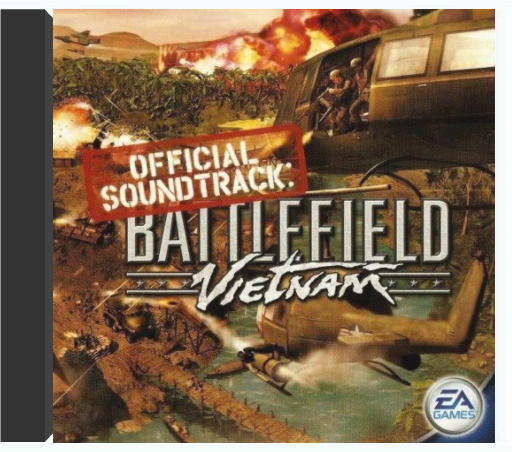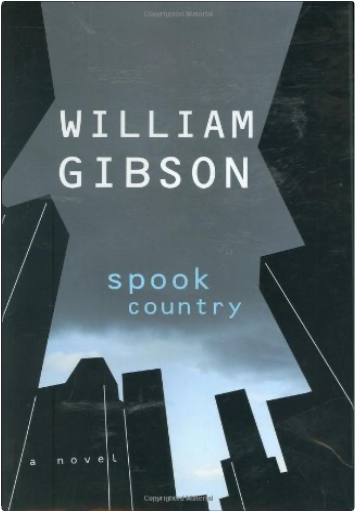 Spook CountryWilliam Gibson Spook CountryWilliam Gibson Tito is in his early twenties. Born in Cuba, he speaks fluent Russian, lives in one room in a NoLita warehouse, and does delicate jobs involving information transfer.
Hollis Henry is an investigative journalist, on assignment from a magazine called Node. Node doesn't exist yet, which is fine; she's used to that. But it seems to be actively blocking the kind of buzz that magazines normally cultivate before they start up. Really actively blocking it. It's odd, even a little scary, if Hollis lets herself think about it much. Which she doesn't; she can't afford to.
Milgrim is a junkie. A high-end junkie, hooked on prescription antianxiety drugs. Milgrim figures he wouldn't survive twenty-four hours if Brown, the mystery man who saved him from a misunderstanding with his dealer, ever stopped supplying those little bubble packs. What exactly Brown is up to Milgrim can't say, but it seems to be military in nature. At least, Milgrim's very nuanced Russian would seem to be a big part of it, as would breaking into locked rooms.
Bobby Chombo is a "producer," and an enigma. In his day job, Bobby is a troubleshooter for manufacturers of military navigation equipment. He refuses to sleep in the same place twice. He meets no one. Hollis Henry has been told to find him.
Pattern Recognition was a bestseller on every list of every major newspaper in the country, reaching #4 on the New York Times list. It was also a BookSense top ten pick, a WordStock bestseller, a best book of the year for Publishers Weekly, the Los Angeles Times, Newsday, and the Economist, and a Washington Post "rave."
Spook Country is the perfect follow-up to Pattern Recognition, which was called by The Washington Post (among many glowing reviews), "One of the first authentic and vital novels of the twenty-first century." 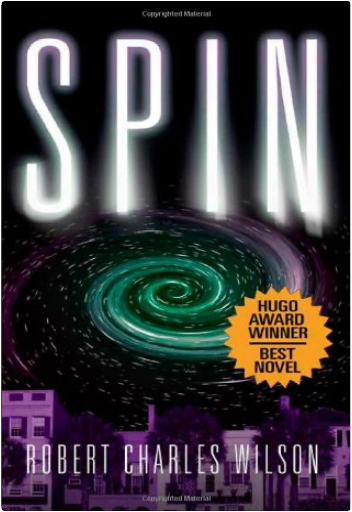 SpinRobert Charles Wilson SpinRobert Charles Wilson One night in October when he was ten years old, Tyler Dupree stood in his back yard and watched the stars go out. They all flared into brilliance at once, then disappeared, replaced by a flat, empty black barrier. He and his best friends, Jason and Diane Lawton, had seen what became known as the Big Blackout. It would shape their lives.
The effect is worldwide. The sun is now a featureless disk—a heat source, rather than an astronomical object. The moon is gone, but tides remain. Not only have the world's artificial satellites fallen out of orbit, their recovered remains are pitted and aged, as though they'd been in space far longer than their known lifespans. As Tyler, Jason, and Diane grow up, space probe reveals a bizarre truth: The barrier is artificial, generated by huge alien artifacts. Time is passing faster outside the barrier than inside—more than a hundred million years per day on Earth. At this rate, the death throes of the sun are only about forty years in our future.
Jason, now a promising young scientist, devotes his life to working against this slow-moving apocalypse. Diane throws herself into hedonism, marrying a sinister cult leader who's forged a new religion out of the fears of the masses.
Earth sends terraforming machines to Mars to let the onrush of time do its work, turning the planet green. Next they send humans...and immediately get back an emissary with thousands of years of stories to tell about the settling of Mars. Then Earth's probes reveal that an identical barrier has appeared around Mars. Jason, desperate, seeds near space with self-replicating machines that will scatter copies of themselves outward from the sun—and report back on what they find.
Life on Earth is about to get much, much stranger. 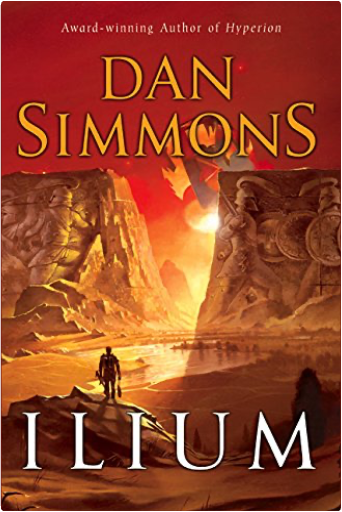 IliumDan Simmons IliumDan Simmons From the towering heights of Olympos Mons on Mars, the mighty Zeus and his immortal family of gods, goddesses, and demigods look down upon a momentous battle, observing — and often influencing — the legendary exploits of Paris, Achilles, Hector, Odysseus, and the clashing armies of Greece and Troy.
Thomas Hockenberry, former twenty-first-century professor and Iliad scholar, watches as well. It is Hockenberry's duty to observe and report on the Trojan War's progress to the so-called deities who saw fit to return him from the dead. But the muse he serves has a new assignment for the wary scholic, one dictated by Aphrodite herself. With the help of fortieth-century technology, Hockenberry is to infiltrate Olympos, spy on its divine inhabitants ... and ultimately destroy Aphrodite's sister and rival, the goddess Pallas Athena.
On an Earth profoundly changed since the departure of the Post-Humans centuries earlier, the great events on the bloody plains of Ilium serve as mere entertainment. Its scenes of unrivaled heroics and unequaled carnage add excitement to human lives devoid of courage, strife, labor, and purpose. But this eloi-like existence is not enough for Harman, a man in the last year of his last Twenty. That rarest of post-postmodern men — an "adventurer" — he intends to explore far beyond the boundaries of his world before his allotted time expires, in search of a lost past, a devastating truth, and an escape from his own inevitable "final fax." Meanwhile, from the radiation-swept reaches of Jovian space, four sentient machines race to investigate — and, perhaps, terminate — the potentially catastrophic emissions of unexplained quantum-flux emanating from a mountaintop miles above the terraformed surface of Mars ...
The first book in a remarkable two-part epic to be concluded in the upcoming Olympos, Dan Simmons's Ilium is a breathtaking adventure, enormous in scope and imagination, sweeping across time and space to connect three seemingly disparate stories in fresh, thrilling, and totally unexpected ways. A truly masterful work of speculative fiction, it is quite possibly Simmons's finest achievement to date in an already storied literary career. 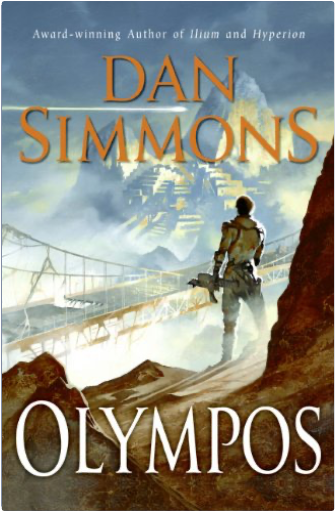 OlymposDan Simmons OlymposDan Simmons Beneath the gaze of the gods, the mighty armies of Greece and Troy met in fierce and glorious combat, scrupulously following the text set forth in Homer's timeless narrative. But that was before one observer—Twenty-first Century scholar Thomas Hockenberry—stirred the bloody brew; before an enraged Achilles joined forces with his archenemy Hector; and before the fleet-footed mankiller turned his murderous wrath on Zeus, Hera, Athena, Aphrodite, Apollo, and the entire pantheon of divine manipulators.
Now, all bets are off.
Dan Simmons, the multiple-award-winning author of The Hyperion Cantos, returns with the eagerly anticipated conclusion to his critically acclaimed, Hugo Award-nominated sf epic Ilium. A novel breathtaking in its scope and conception, Olympos ingeniously imagines a catastrophic future where immortal "post-humans" high atop the real Olympos Mons on Mars restage the Trojan War for their own amusement even while the sad remnants of mortal humankind are forced to confront their ultimate annihilation.
For untold centuries, those few old-style humans remaining on Earth have never known strife, toil, or responsibility, each content to live his or her allocated hundred years of life in unquestioning leisure. But virtually overnight and for reasons beyond their comprehension, the world around them has changed forever. The voynix—terrible and swift creatures that once catered to their every need—are now massing in the millions with but one terrifying purpose: the total extermination of the human race.
Having traveled farther and learned more of the wondrous and terrible truth of their world than any others of their kind, Ada and Daeman—with the aid of the crafty and mysterious warrior once called Odysseus, now called Noman—must marshal the pathetic defenses of Ardis Hall in anticipation of the onslaught of the murderous voynix. And they must do so without Harman, Ada's lover and the father of her unborn child, who wanders the Earth on a great odyssey of his own. Harman seeks nothing less than the limitless knowledge necessary to defeat Setebos, an unspeakable, otherworldly monster who feeds on horror, and whose arrival heralds the end of all things.
And meanwhile, back on Mars . . .
The vengeful rebellion of Achilles—and the intervention of sentient robots from Jovian space, determined to prevent a potentially universe-obliterating quantum catastrophe—has set immortal against immortal, igniting a civil war among Olympian gods that may send all things in Heaven and Earth and everywhere in between plummeting straight to Hell.
A monumental work that blurs the often arbitrary line between great sf and serious literature, Dan Simmons's Olympos—together with its extraordinary predecessor, Ilium—sets new standards for the genre, confirming his reputation as one of the most original authors currently working in the field of speculative fiction. 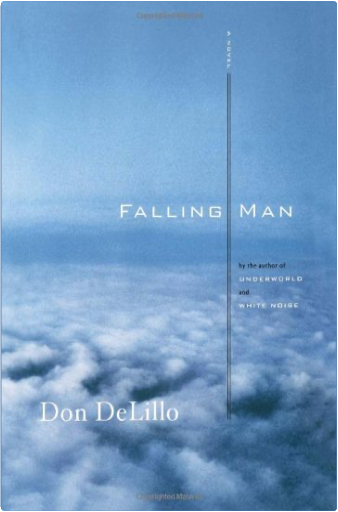 Falling Man: A NovelDon DeLillo Falling Man: A NovelDon DeLillo There is September 11 and then there are the days after, and finally the years.
Falling Man is a magnificent, essential novel about the event that defines turn-of-the-century America. It begins in the smoke and ash of the burning towers and tracks the aftermath of this global tremor in the intimate lives of a few people.
First there is Keith, walking out of the rubble into a life that he'd always imagined belonged to everyone but him. Then Lianne, his es-tranged wife, memory-haunted, trying to reconcile two versions of the same shadowy man. And their small son Justin, standing at the window, scanning the sky for more planes.
These are lives choreographed by loss, grief and the enormous force of history.
Brave and brilliant, Falling Man traces the way the events of September 11 have reconfigured our emotional landscape, our memory and our perception of the world. It is cathartic, beautiful, heartbreaking. 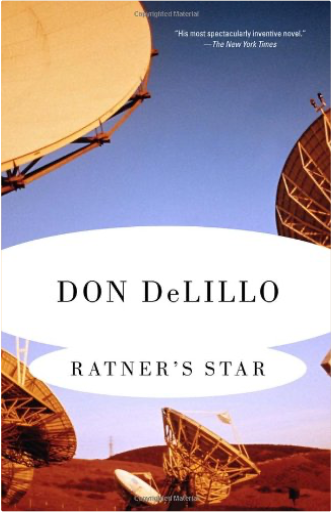 Ratner's StarDon Delillo Ratner's StarDon Delillo "A whimsical, surrealistic excursion into the modern scientific mind." —The New Yorker
One of DeLillo's first novels, Ratner's Star follows Billy, the genius adolescent, who is recruited to live in obscurity, underground, as he tries to help a panel of estranged, demented, and yet lovable scientists communicate with beings from outer space. It is a mix of quirky humor, science, mathematical theories, as well as the complex emotional distance and sadness people feel. Ratner's Star demonstrates both the thematic and prosaic muscularity that typifies DeLillo's later and more recent works, like The Names (which is also available in Vintage Contemporaries).
"His most spectacularly inventive novel." —The New York Times 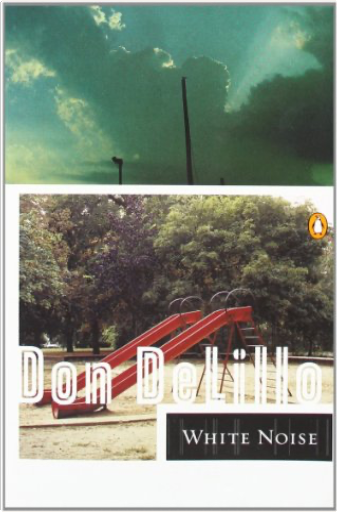 White NoiseDon DeLillo White NoiseDon DeLillo Winner of the National Book Award – a “eerie, brilliant, and touching” (New York Times) family drama about mass culture and the numbing effects of technology
Jack Gladney teaches Hitler studies at a liberal arts college in Middle America where his colleagues include New York expatriates who want to immerse themselves in "American magic and dread." Jack and his fourth wife, Babette, bound by their love, fear of death, and four ultramodern offspring, navigate the usual rocky passages of family life to the background babble of brand-name consumerism.
Then a lethal black chemical cloud floats over their lives, an "airborne toxic event" unleashed by an industrial accident. The menacing cloud is a more urgent and visible version of the "white noise" engulfing the Gladney family—radio transmissions, sirens, microwaves, ultrasonic appliances, and TV murmerings—pulsing with life, yet heralding the danger of death. 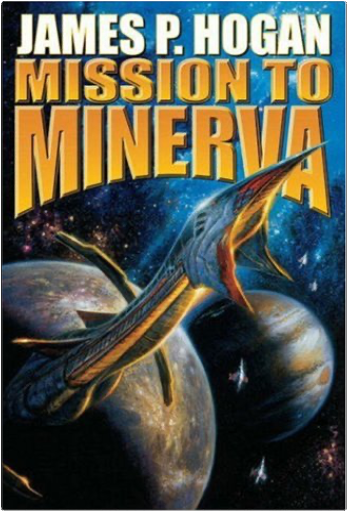 Mission to MinervaJames P. Hogan Mission to MinervaJames P. Hogan It began when explorers on the Moon found a space suit containing a human skeleton older than the human race. Then a starship manned by the giant humanoids of Thuria arrived, bringing both the answer to mankind's origins, and also great danger, as Earth was now caught in a struggle between the giants benevolent empire and another offshoot of the human race who regarded the Earth as rightfully theirs. Earth thought they had won the battle, and the future now looked bright, as trade and knowledge flowed back and forth between Earth and Thuria. Then Dr. Victor Hunt received a phone call - and the face - in the phone's video screen was another version of himself, calling from a parallel world. That was the first step in bridging the gap between the parallel universes of the "multiverse." Unfortunately, it also meant that enemies who had been decisively defeated in one universe were still alive and dangerous in another, and could arrive in force at any time. And the possibility soon became a frightening reality... 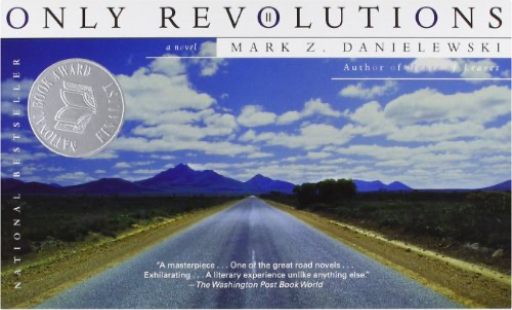 Only Revolutions: A NovelMark Z. Danielewski Only Revolutions: A NovelMark Z. Danielewski Sam:
They were with us before Romeo & Juliet. And long after too. Because they’re forever around. Or so both claim, carolling gleefully:
We’re allways sixteen.
Sam & Hailey, powered by an ever-rotating fleet of cars, from Model T to Lincoln Continental, career from the Civil War to the Cold War, barrelling down through the Appalachians, up the Mississippi River, across the Badlands, finally cutting a nation in half as they try to outrace History itself.
By turns beguiling and gripping, finally worldwrecking, Only Revolutions is unlike anything ever published before, a remarkable feat of heart and intellect, moving us with the journey of two kids, perpetually of summer, perpetually sixteen, who give up everything except each other.
Hailey:
They were with us before Tristan & Isolde. And long after too. Because they’re forever around. Or so both claim, gleefully carolling:
We’re allways sixteen.
Hailey & Sam, powered by an ever-rotating fleet of cars, from Shelby Mustang to Sumover Linx, careen from the Civil Rights Movement to the Iraq War, tearing down to New Orleans, up the Mississippi River, across Montana, finally cutting a nation in half as they try to outrace History itself.
By turns enticing and exhilarating, finally breathtaking, Only Revolutions is unlike anything ever conceived before, a remarkable feat of heart and intellect, moving us with the journey of two kids, perpetually of summer, perpetually sixteen, who give up everything except each other. 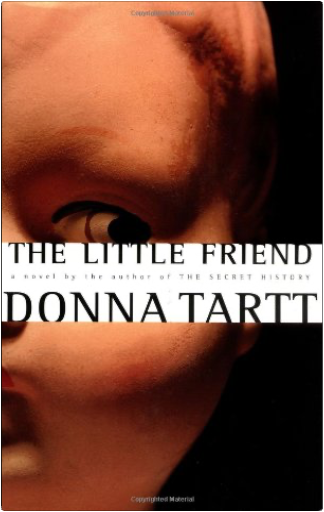 The Little FriendDonna Tartt The Little FriendDonna Tartt The hugely anticipated new novel by the author of The Secret History—a best-seller nationwide and around the world, and one of the most astonishing debuts in recent times—The Little Friend is even more transfixing and resonant.
In a small Mississippi town, Harriet Cleve Dusfresnes grows up in the shadow of her brother, who—when she was only a baby—was found hanging dead from a black-tupelo tree in their yard. His killer was never identified, nor has his family, in the years since, recovered from the tragedy.
For Harriet, who has grown up largely unsupervised, in a world of her own imagination, her brother is a link to a glorious past she has only heard stories about or glimpsed in photograph albums. Fiercely determined, precocious far beyond her twelve years, and steeped in the adventurous literature of Stevenson, Kipling, and Conan Doyle, she resolves, one summer, to solve the murder and exact her revenge. Harriet’s sole ally in this quest, her friend Hely, is devoted to her, but what they soon encounter has nothing to do with child’s play: it is dark, adult, and all too menacing.
A revelation of familial longing and sorrow, The Little Friend explores crime and punishment, as well as the hidden complications and consequences that hinder the pursuit of truth and justice. A novel of breathtaking ambition and power, it is rich in moral paradox, insights into human frailty, and storytelling brilliance. |
 Spook CountryWilliam Gibson
Spook CountryWilliam Gibson  SpinRobert Charles Wilson
SpinRobert Charles Wilson  IliumDan Simmons
IliumDan Simmons  OlymposDan Simmons
OlymposDan Simmons  Falling Man: A NovelDon DeLillo
Falling Man: A NovelDon DeLillo  Ratner's StarDon Delillo
Ratner's StarDon Delillo  White NoiseDon DeLillo
White NoiseDon DeLillo 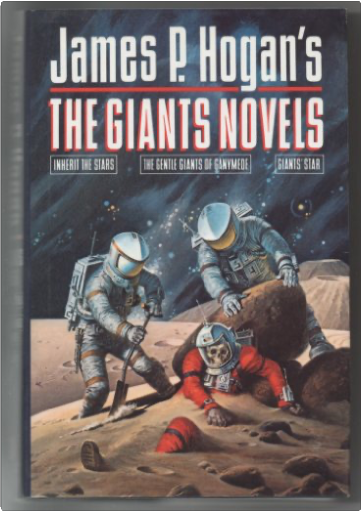 The Giants Novels: Inherit the Stars, The Gentle Giants of Ganymede, Giants' StarJames P. Hogan
The Giants Novels: Inherit the Stars, The Gentle Giants of Ganymede, Giants' StarJames P. Hogan  Mission to MinervaJames P. Hogan
Mission to MinervaJames P. Hogan  Only Revolutions: A NovelMark Z. Danielewski
Only Revolutions: A NovelMark Z. Danielewski  The Little FriendDonna Tartt
The Little FriendDonna Tartt  Made with Delicious Library
Made with Delicious Library
